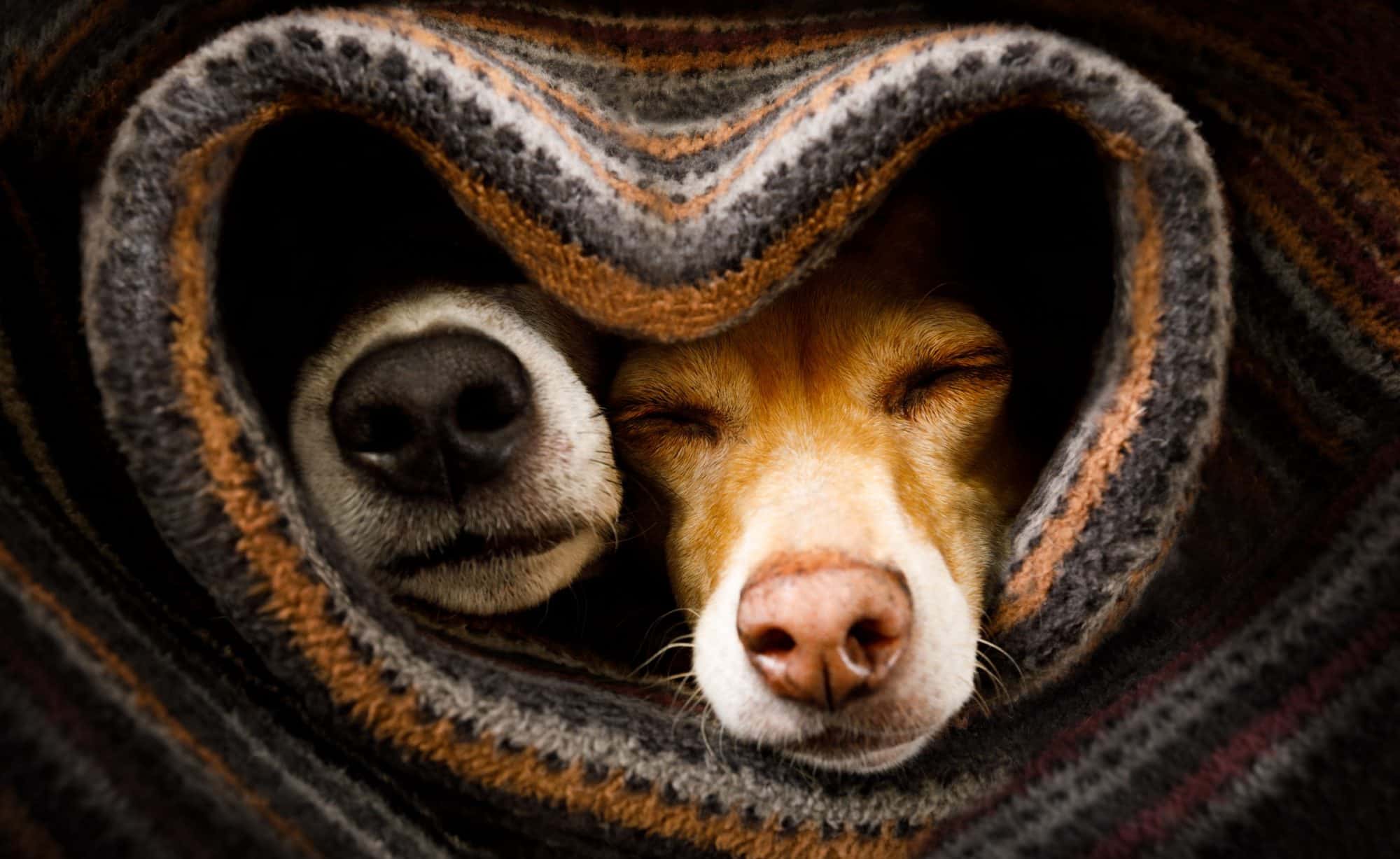
The weather has the power to change our behavior, improve well-being, and add layers of meaning to any time spent outdoors, but it can also simply be something that we have to deal with. This is evident in the middle winter as we slog through just for the reward of eventually reaching spring. Our pets may not alter their behavioral patterns or habits as much as we do, but that doesn’t mean they aren’t vulnerable to the season’s whims. Protect your pet from various external hazards with our winter pet safety tips.
Staying Warm(ish)
Despite not having the worst winter weather in the country, our local pets can still get chilled. If they are exposed to cold pavement, frost, ice, or ice-melt chemicals, take steps to rinse their paws in lukewarm water and dry off with a clean towel. Their skin on their paw pads can crack or break, leading to pain and even infection. There are natural wax products that can soothe dry skin and aid the healing process.
No Drafts or Chills
The colder months can worsen symptoms of osteoarthritis. Take care of an aging or senior pet by providing a self-warming, orthopedic bed. Place it in a warm area far from windows or doorways. Reduce slips or falls by installing non-slip surfaces around the house, ramps, or pet stairs. Some types of pet booties give senior pets more confidence and comfort when they go outside.
Shorter Days
Chances are, your pet’s daily walk will occur near dawn or dusk. With shortened daylight hours, outfit your pet with a comfortable sweater or vest, booties, and a light affixed to their collar or leash. Shorten their time outside if they begin to show signs of discomfort, or break up walks throughout the day.
Poisoning Risks
While out and about, be sure that your pet doesn’t sample any antifreeze gathered in ground puddles. If you have this product in your garage, securely store it and clean up any leaks on the garage floor or driveway.
The holidays are simply full of potential poisoning risks to our pets, most of which are found in the kitchen or around the table, including:
- Chocolate
- Xylitol
- Alcohol
- Caffeine
- Grapes/raisins/currants
- Onions
- Garlic
- Raw bread dough
Also, be sure to take out waste bins so your pet doesn’t have access to bones, fatty foods, and products that could lead to foreign body obstruction (such as plastic food wrapping).
Holiday Decor & More
The winter has some of the most festive holidays, and they are even more delightful with a variety of lights, candles, wreaths, plants, and so much more. There’s a lot a pet owner can do to protect their pet from illness or injury related to holiday decorations, including simply not having them in their pet’s environment. If your home is decorated, watch your pet’s behavior closely and reduce their exposure to batteries, breakables, and items that could cause choking or GI obstruction.
Winter Pet Safety
If you have additional questions or concerns about winter pet safety, please give us a call at (530) 533-7513. Oroville Animal Health Center is always here for you.
